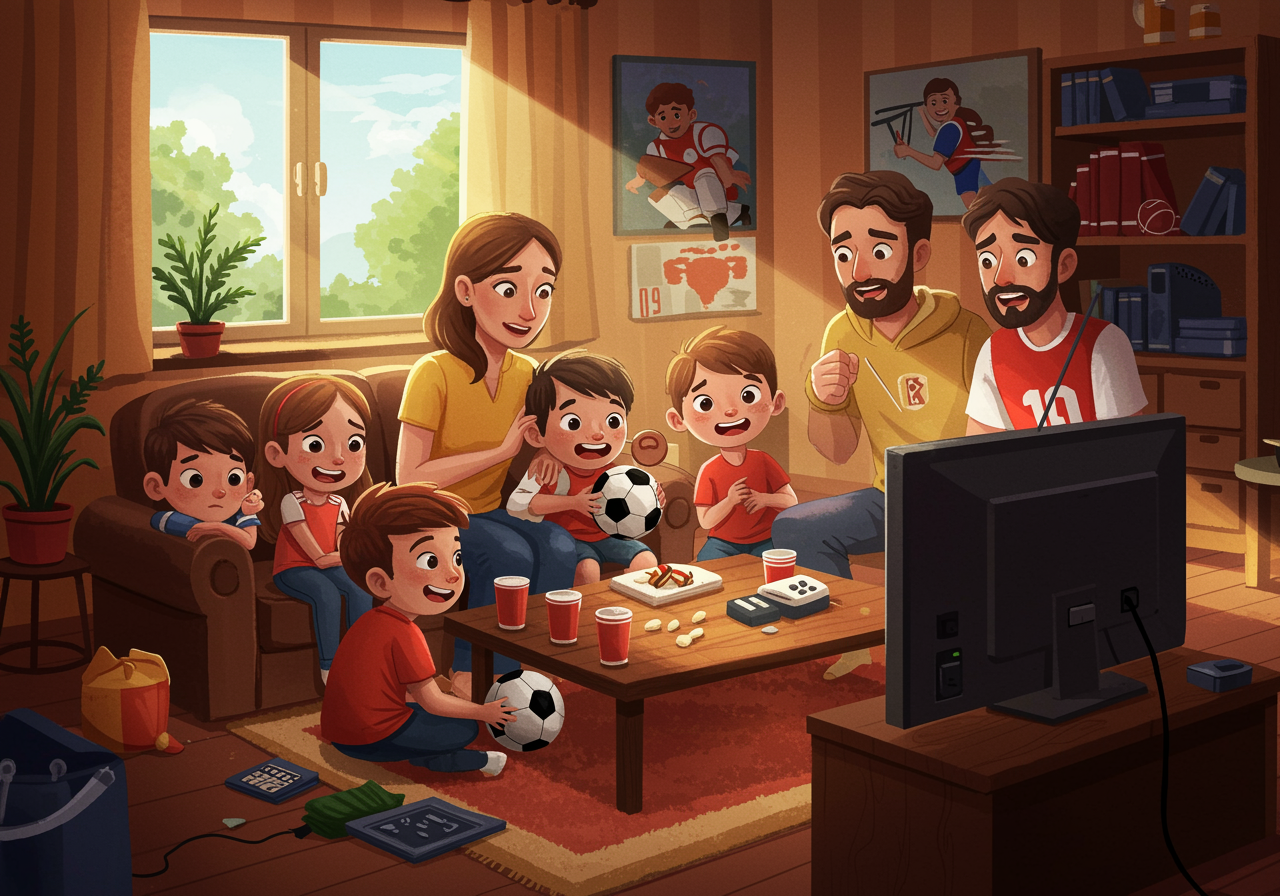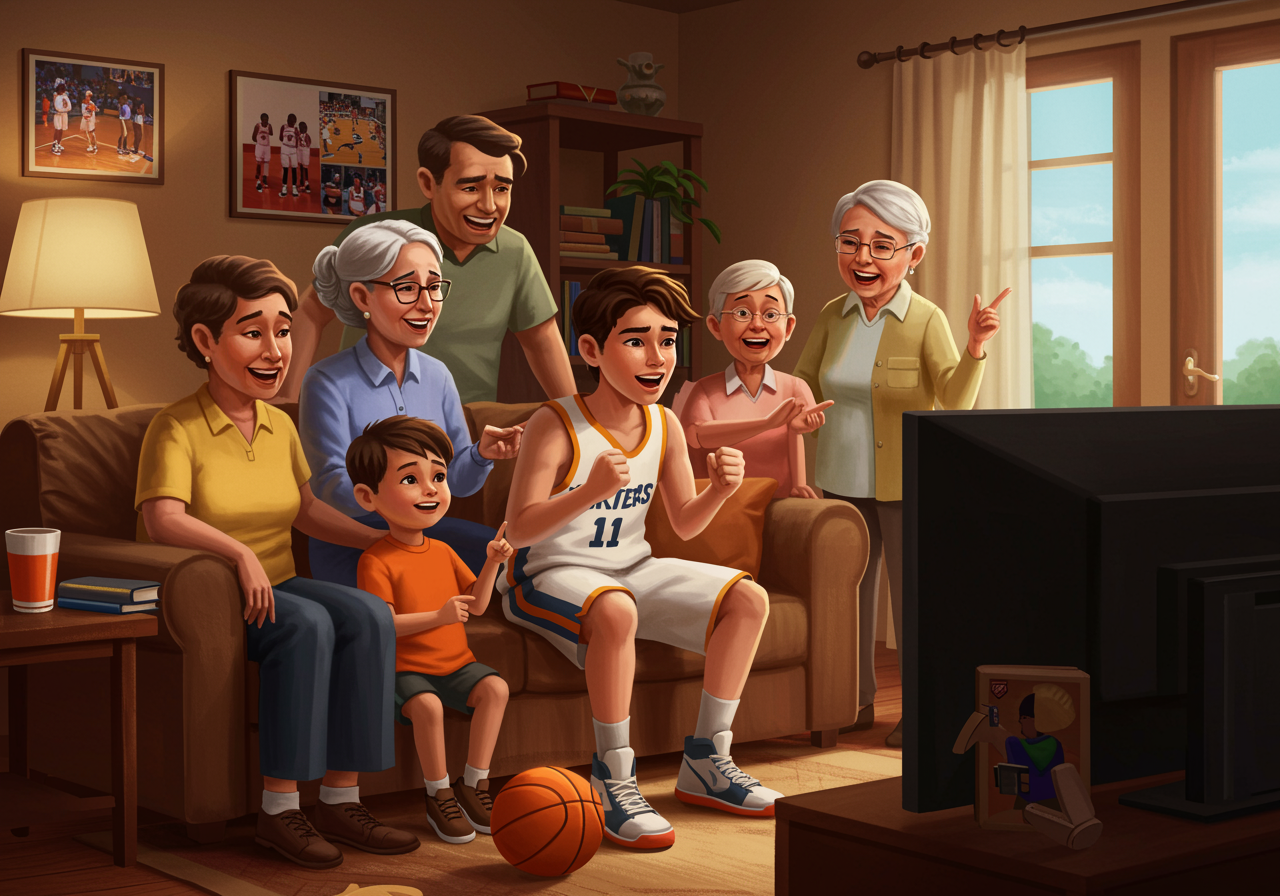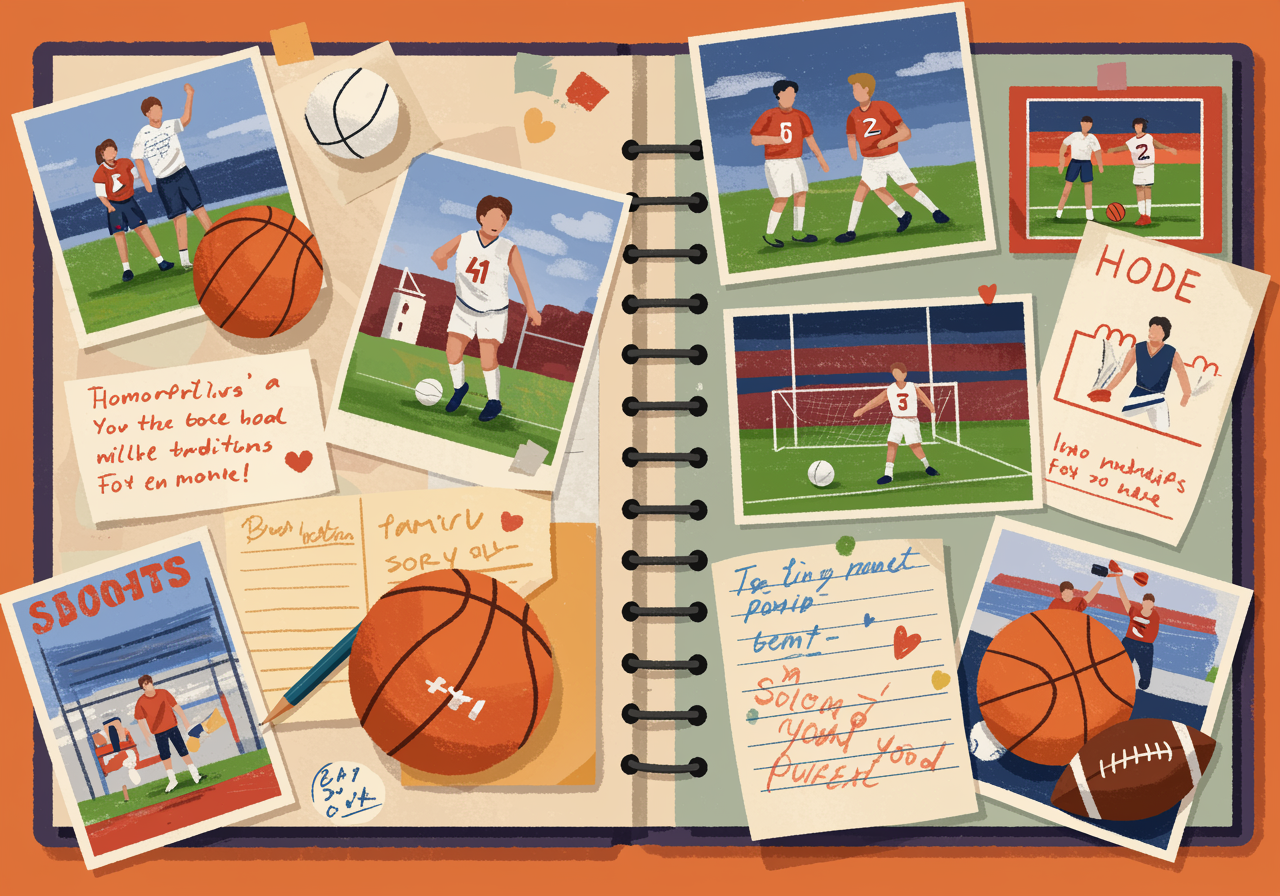The Magic of Sports Stories: Why We Cheer, Cry, and Never Give Up
Discover how the stories behind sports create lifelong fans and unforgettable memories
Explore why a simple game becomes so much more when wrapped in stories of triumph, heartbreak, and human connection.
Overview
Think about your favorite sports moment – was it just the score that mattered, or was it the story behind it? Maybe it was your team's comeback victory, a player overcoming injury, or watching the game with someone special. Sports become magical when they're wrapped in stories that make us feel connected to something bigger than ourselves. These stories help families bond, teach life lessons, and create memories that last forever.

Understand in 30 Seconds
Get up to speed quickly
- Stories Make Sports Personal: When we know a player's background or a team's history, we don't just watch a game – we become part of their journey.
- Family Traditions Start With Stories: Sports stories passed down through families create bonds and shared experiences that connect generations.
- Heroes Inspire Real Life: Athletes' stories of overcoming challenges teach us lessons about perseverance, teamwork, and never giving up.
- Shared Stories Build Communities: When fans share the same stories about their teams, they create instant connections with strangers who become friends.
Real Life Scenario
Situations you can relate to
Imagine your friend Jake suddenly becomes obsessed with basketball. You're confused because he never cared about sports before. Then you learn his story: his grandfather played college basketball and recently shared old photos and game stories before he passed away. Now when Jake watches games, he's not just seeing players – he's connecting with his grandfather's memory and feeling part of their family legacy. The same thing happens when you hear about a player who grew up in poverty and worked three jobs to support their family. Suddenly, every shot they make feels like a victory for everyone who's ever struggled. Have you ever felt more excited about a game because you knew the backstory?

Role Play
Spark a conversation with “what if” scenarios
What if you had to explain to an alien why humans get so emotional watching people chase a ball around?
- Role play: Take turns being the alien and the human. The human has to explain how stories make sports meaningful without using any sports terms.
What if you were a sports announcer who could only tell stories, not describe the action?
- Role play: Pick a sport and narrate an imaginary game by focusing only on the players' backgrounds, dreams, and what this moment means to them.
What if your family had to create a new sports tradition starting today?
- Role play: Design a family sports tradition together, including what stories you'd tell future generations about why it matters to your family.
FAQs
Frequently asked questions people want to know
Why do some people cry during sports games?
Sports stories tap into our emotions. When we connect a game to personal memories, family traditions, or inspiring player journeys, the outcome becomes about more than just winning or losing.
How do sports stories help build character in kids?
Stories about athletes overcoming obstacles teach real-life lessons about persistence, teamwork, and handling both success and failure with grace.
Why do parents care so much about passing down team loyalty?
Supporting the same team creates shared experiences and family bonding opportunities. It gives families common stories to tell and memories to make together.
Examples in the Wild
See how this works day to day
- The story of the 2016 Chicago Cubs ending their 108-year championship drought became about more than baseball – it was about generations of families finally celebrating together (ESPN Sports Documentation)
- Serena Williams' journey from practicing on cracked courts in Compton to becoming a tennis legend inspires millions of kids to pursue their dreams (Biography Channel)
- The 'Miracle on Ice' 1980 Olympics hockey story continues to inspire Americans decades later, showing how sports stories become part of national identity (Olympic Historical Archives)
- Stephen Curry's story of being overlooked for his size motivates young athletes to work harder and believe in themselves (NBA Official Biography)
In Summary
What you should know before you start
- Sports stories transform games into emotional experiences that connect us to players, teams, and each other
- Family sports traditions create lasting bonds and shared memories across generations
- Athlete stories of overcoming challenges teach valuable life lessons about persistence and character
- Shared team stories help build communities and friendships with people who might otherwise be strangers
Pro-tip for Parents
You got this!
If your teen seems uninterested in sports, try sharing your own sports stories or finding athlete stories that connect to their interests or challenges. Don't focus on statistics or rules – focus on the human drama. Ask about their favorite player's background or what draws them to certain teams. Sometimes kids connect to sports through the stories before they connect to the games themselves.

Keep an Eye Out For
Find these examples in everyday life
- Watch for emotional moments during games when announcers share player backstories – perfect conversation starters
- Notice when your teen mentions a favorite athlete and ask them what they know about that person's journey
- Look for sports movies or documentaries you can watch together that highlight inspiring athlete stories
Explore Beyond
Look up these related research topics
- How do underdog stories in movies relate to real-life sports comebacks?
- What role does social media play in how we connect with athletes today?
- How do different cultures around the world use sports to tell their stories?